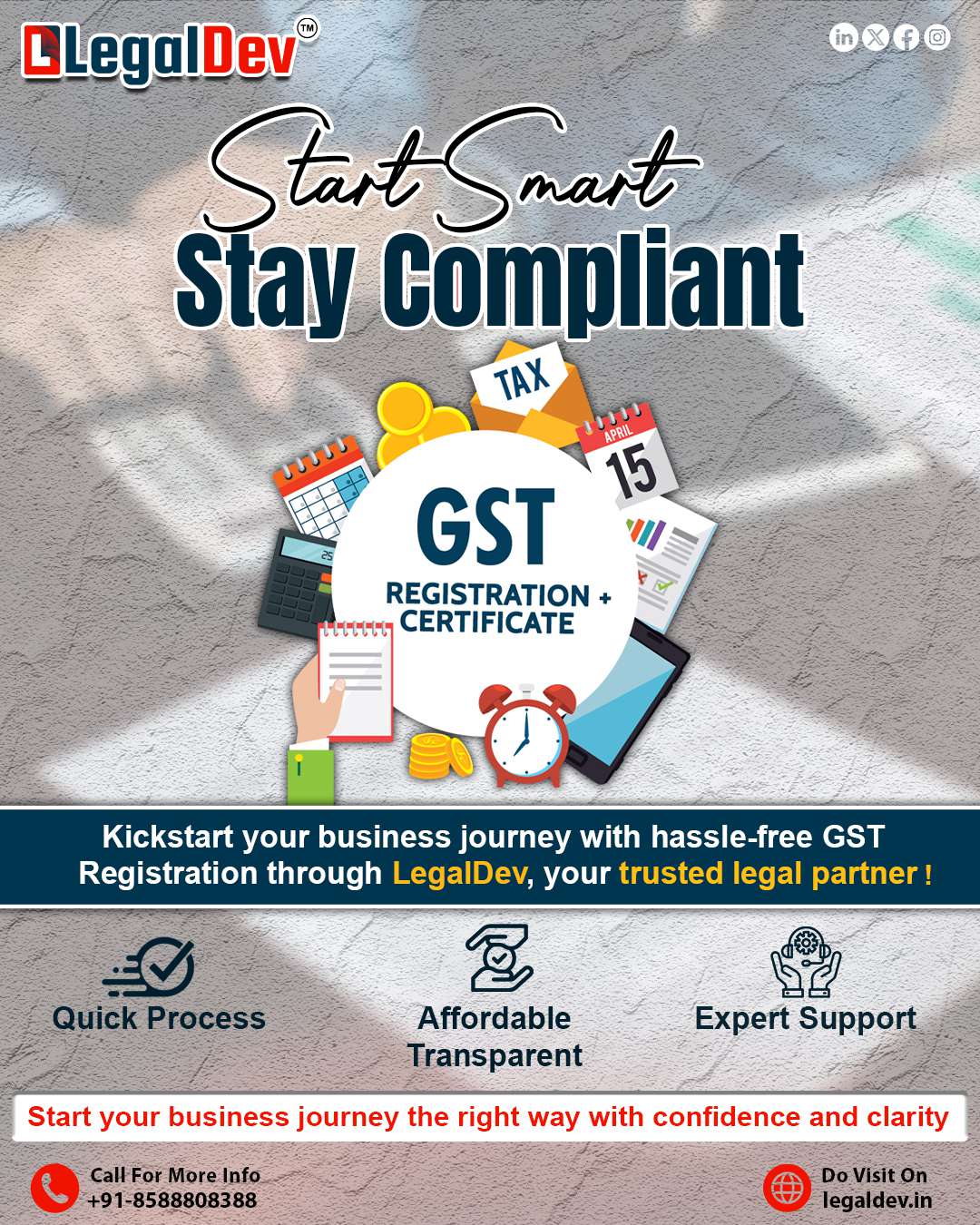Who Needs GST Registration in India? Rules, Threshold Limits & Legal Requirements Explained
Goods and Services Tax (GST) has changed the paradigm of taxation in India to allow for a single tax to be levied on goods and services. GST has also streamlined indirect taxes, as the compliance process begins with GST Registration, which is an imperative step. Regardless of whether you are a small trader, an online seller, a service provider, or an established manufacturer, it is important to understand who must GST Registration in India to comply with legal requirements and carry out business activities smoothly. This blog discusses eligibility, threshold limits and legal requirements in a clear, professional tone in order to help you make an informed decision regarding GST Registration.
What is GST Registration?
GST registration is a formal procedure by which a business obtains registration under the Goods and Services Tax regime. Upon registration, the business receives a unique GSTIN (Goods and Services Tax Identification Number), which is required for tax collection, to avail of Input Tax Credit, and for filing the periodical GST returns. Not only does being registered curb tax fraud but also adds credibility or reputation in the market, especially if you wanted to work in partnership with corporates or government departments.
Who Must Register for GST in India?
1. Businesses with Turnover Above Threshold Limit
The most basic rule is based on aggregate annual turnover:
• For Goods:
o ₹40 lakhs for most states
o ₹20 lakhs for special category states (like those in the North-East)
• For Services:
o ₹20 lakhs for most states
o ₹10 lakhs for special category states
If your total turnover in a financial year crosses these thresholds, GST registration becomes mandatory.
2. Interstate Suppliers
Any person or business supplying goods or services across state borders must obtain GST registration, regardless of turnover.
3. E-commerce Sellers
If you sell goods or services online through platforms like Amazon, Flipkart, or your own website, GST registration in India is compulsory, irrespective of turnover.
4. Casual Taxable Persons
These are individuals who occasionally supply goods or services in areas where they do not have a fixed place of business. For example, a pop-up store at a trade fair in another state.
5. Non-resident Taxable Persons
Anyone residing outside India but supplying goods or services in India must register for GST before starting operations.
6. Businesses under Reverse Charge Mechanism (RCM)
If you're liable to pay tax under RCM (where the buyer pays GST instead of the seller), you must register even if your turnover is below the threshold.
7. Agents of a Supplier
Commission agents and other intermediaries working on behalf of suppliers must also register under GST.
Voluntary GST Registration
Even if your turnover is below the mandatory limit, you can opt for voluntary GST registration. This helps you:
• Claim input tax credit on purchases
• Improve your business credibility
• Expand into B2B or interstate trade easily
Many startups and small businesses avail GST registration services early on to position themselves as trustworthy and compliant entities.
Penalties for Not Registering
Non-compliance with GST registration rules can attract serious penalties:
• ₹10,000 or amount of tax evaded (whichever is higher)
• Legal action by tax authorities
• Ineligibility to claim input tax credit
So, it’s always better to stay proactive and ensure your business is registered on time.
Conclusion
In India, GST registration is not just a legal formality. It is a critical step for any business, looking to grow, remain compliant with the law, and instill trust in the market. It is either compulsory based on your turnover or strategically in order to scale your operation, but allows you to cut down on legal trouble and economic losses if you understand the rules and tilts. However, if you have any doubt about your registration or you want assistance, you may want to work with a reputable GST registration service to help you simplify the steps and remain compliant.
https://legaldev.in/GST-Registration.aspx




